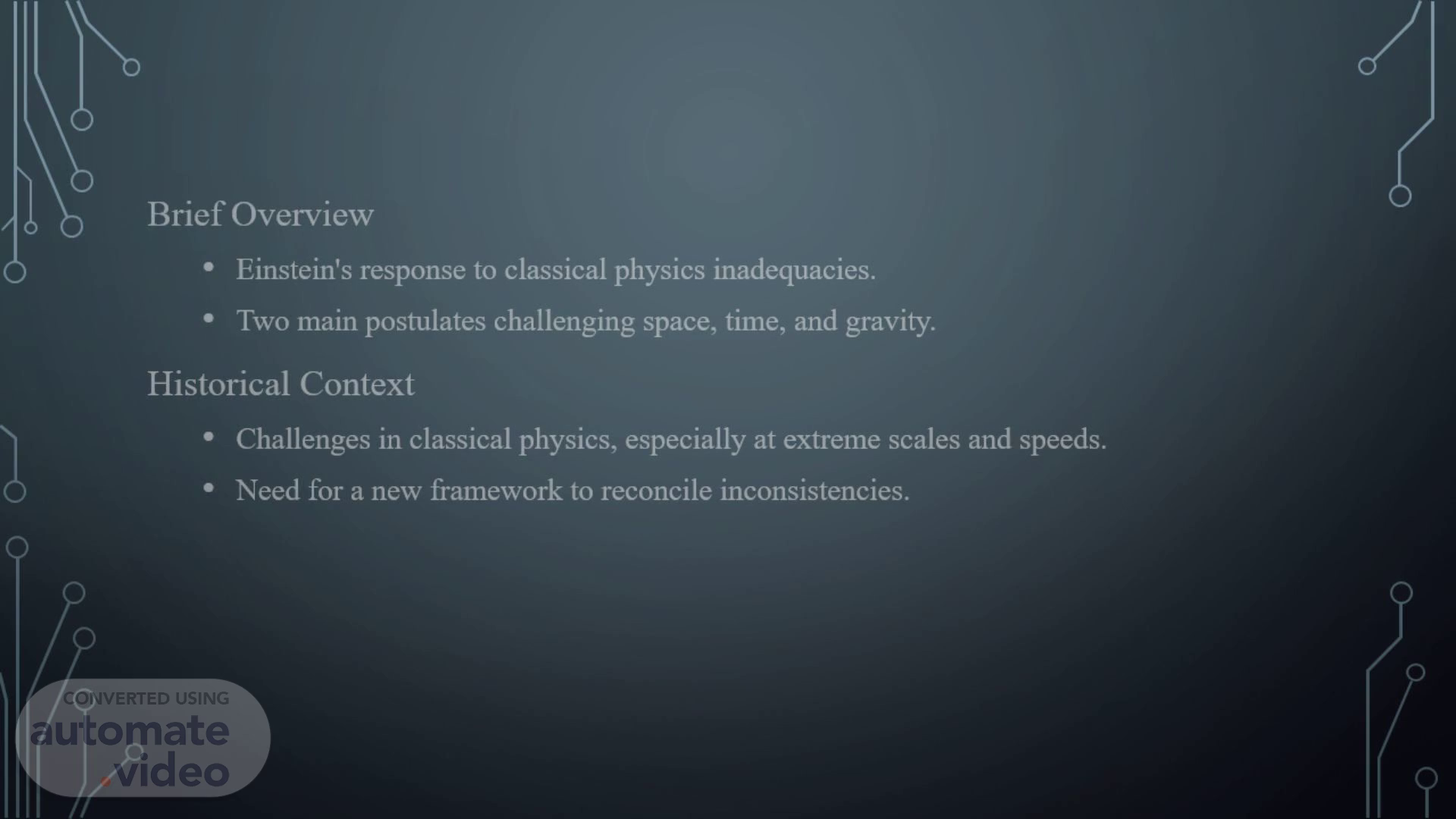
Introduction to the Theory of Relativity
Scene 1 (0s)
[Audio] Einstein's Theory of Relativity emerged as a revolutionary response to the limitations of classical physics. The theory, developed in the early 20th century, sought to address inconsistencies in explaining phenomena at extreme scales and speeds. Comprising two pivotal postulates, the theory challenges our intuitive notions of space, time, and gravity, ushering in a new era in the understanding of the physical world..
Scene 2 (28s)
[Audio] The first postulate, the Principle of Relativity, asserts that the laws of physics are the same for all observers in uniform motion, eliminating the concept of a privileged reference frame. This leads to the abandonment of the idea of absolute space and time. The second postulate declares that the speed of light is constant for all observers, challenging classical notions. Consequences include time dilation and length contraction, which have been experimentally confirmed, reshaping our understanding of the fabric of reality..
Scene 3 (1m 4s)
[Audio] Einstein's theory redefines gravity as the curvature of spacetime caused by mass, a concept vividly illustrated by the analogy of a rubber sheet warped by a heavy object. Gravitational time dilation, where time passes more slowly in stronger gravitational fields, has observable effects. The theory's cosmological implications include the prediction and confirmation of phenomena like black holes and gravitational waves. Remarkably, the theory finds practical applications in modern technologies, such as GPS, showcasing its relevance beyond theoretical physics..
Scene 4 (1m 43s)
[Audio] In conclusion, Einstein's Theory of Relativity remains a cornerstone of modern physics, influencing our understanding of the universe at both the micro and macro scales. Its principles, the Principle of Relativity and the constant speed of light, challenge classical notions and continue to stand the test of experimental scrutiny. As we wrap up, I encourage further exploration into the fascinating world of relativity, recognizing its enduring impact on our perception of the cosmos and its role in shaping the technological landscape. Thank you for your attention, and feel free to ask any questions..